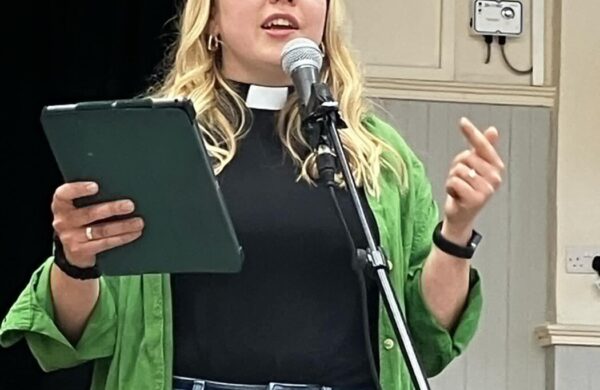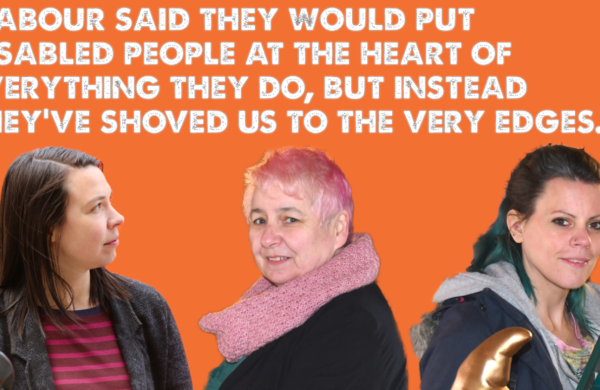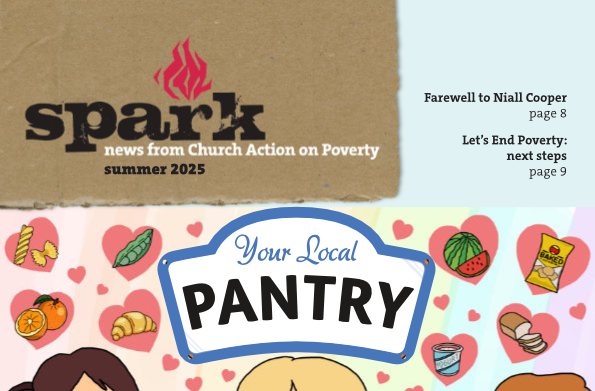What will it take to end hunger in the UK?
Did any of us ever expect the re-emergence of hunger as a social reality in twenty-first century Britain?
Emma’s story of life in food poverty in Cambridge is typical of many:
“I am a single mum of three and have used food banks three times since November 2017. It felt really awful to be in that position; I went from a £30,000-a-year job in HR to ending up there in six months. Following my husband and I separating, he left me with a lot of debt and I couldn’t sustain living costs and childcare on my own so I had to give up my job and claim income support.
It’s really hard to go to the food bank when you are used to doing your own shopping and supporting yourself. The volunteers were really good and didn’t judge but I still got upset, and they were comforting. At the time, I hadn’t realised you’re limited to how many time you can use food banks per year and I found that concept quite bizarre. It’s there to help people when they are in need but you can’t dictate when and how many times they will be in need – everyone’s circumstances are different.”
Every story of food poverty is different, but every story is one story too many. Yet with up to eight million households experiencing some level of ‘household food insecurity’, this is the painful truth for far too many people in communities the length and breadth of the UK.
As the Joseph Rowntree Foundation have painstakingly documented, we are now living in a decade of destitution, of squeezed incomes, rising living costs, and households trapped with rising levels of debt and little or no savings to fall back on, and in many cases literally nothing left in the cupboard. This leaves families with little resilience against even the smallest shocks to their income.
According to research by the Social Market Foundation, four in ten individuals with a household income of £10,000 or less reported that groceries were a strain on finances. A quarter of individuals said that healthy and nutritious food was unaffordable in the UK. One in ten said that they had cut back on their own level of food consumption so that others in their family (such as children) can eat.
However, food poverty in the UK is not fundamentally an issue of a shortage of food, but a shortage of income. This fact has been extensively researched and documented in recent years, in various reports including from the All Party Parliamentary Group on Food Poverty/Feeding Britain and most recently the Childrens’ Future Food Inquiry which reported in April.
The good news is that literally thousands of local faith and community groups have stepped up to the plate in recent years, not just through the estimated 2,000 food banks across the UK, but a huge array of other community food projects, community cafes, growing schemes, social supermarkets and the like. On the one hand this demonstrates the immense power of local groups to act for the common good, but on the other it highlights the increasing inability (or unwillingness) of the state to ensure access to the basic necessities of life.
This poses a key challenge for charities and local communities: Are we willing to accept that we can’t solve the problem of food poverty and hunger on our own?
It is clear that End Hunger UK’s vision of a UK in which everyone has access to good food and no one needs to go to bed hungry can only be realised if Government also steps up to the plate. Only central Government has the power to mobilise the resources, policies and legislative power to end UK hunger.
The good news is that in signing up to the UN Sustainable Development Goals, the UK Government has already committed to achieving zero hunger in the UK by 2030. But to deliver on this goal will require Government to develop a clear roadmap, coordinating the efforts of multiple Government departments, local councils, faith and community groups and many others.
The End Hunger UK campaign is therefore calling on the UK Government – and all political parties – to affirm their commitment to the goal of ending UK hunger by 2030 – and to developing a concrete plan to halve the numbers of people in household food insecurity by 2025 as a stepping stone towards this goal. Most importantly, the plan will need to focus on tackling the underlying factors which are sweeping far too many households into household food insecurity in the first place.
Our task is to build the popular pressure and political will to make the goal of ending hunger in the UK a priority for politicians and parties from across the political spectrum.
In the sixth wealthiest country on the planet, that should not be too much to ask.
Niall Cooper is Director of Church Action on Poverty and chair of the End Hunger UK campaign.



